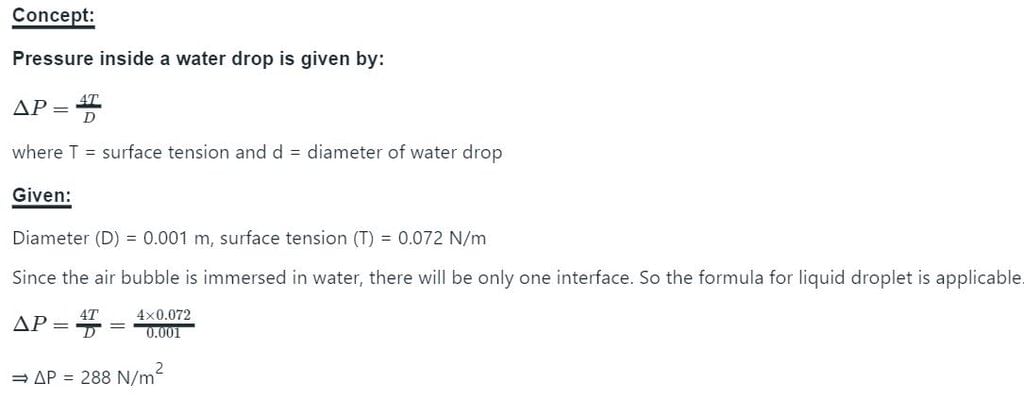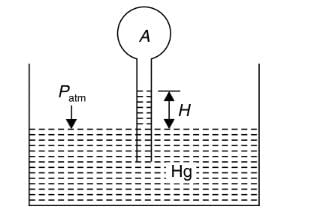Test: Introduction to Fluid Mechanics - Mechanical Engineering MCQ
15 Questions MCQ Test Fluid Mechanics for Mechanical Engineering - Test: Introduction to Fluid Mechanics
The value of the surface tension of an ideal fluid is
The value of the viscosity of an ideal fluid is
A small shear force is applied on an element and then removed. If the element regains it’s original position, what kind of an element can it be?
In which type of matter, one won’t find a free surface?
If a person studies about a fluid which is at rest, what will you call his domain of study?
The value of the compressibility of an ideal fluid is
The value of the Bulk Modulus of an ideal fluid is
The difference in pressure (in N/m2) across an air bubble of diameter 0.001 m immersed in water (surface tension = 0.072 N/m) is _____
A mercury manometer is used to measure the static pressure at a point in a water pipe shown in figure. The level difference of mercury in the two limbs is 10 mm. The gauge pressure at that point is
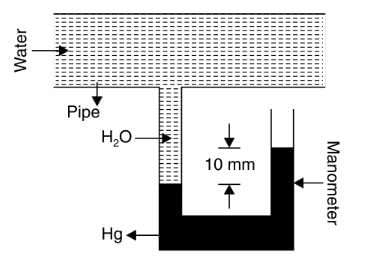
The large vessel shown in the figure contains oil and water. A body is submerged at the interface of oil and water such that 45% of its volume is in oil while the rest is in water. The density of the body is ______ kg/m3.
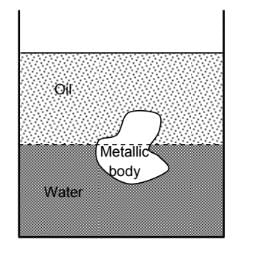
The specific gravity of oil is 0.7 and the density of water is 1000 kg/m3. Acceleration due to gravity g = 10 m/s2
Specific gravity of oil = 0.7
Density of water = 1000 kg/m3
Oil in a hydraulic cylinder is compressed from an initial volume 2 m3 to 1.96 m3. If the pressure of oil in the cylinder changes from 40 MPa to 80 MPa during compression, the bulk modulus of elasticity of oil is _____
In given figure below, if the pressure of gas in bulb A is 50 cm. Hg vacuum and Patm = 76 cm Hg, then height of column H is equal to
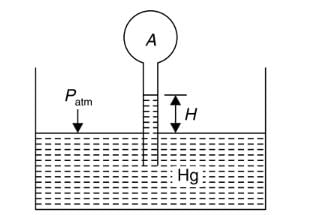
|
56 videos|106 docs|75 tests
|



